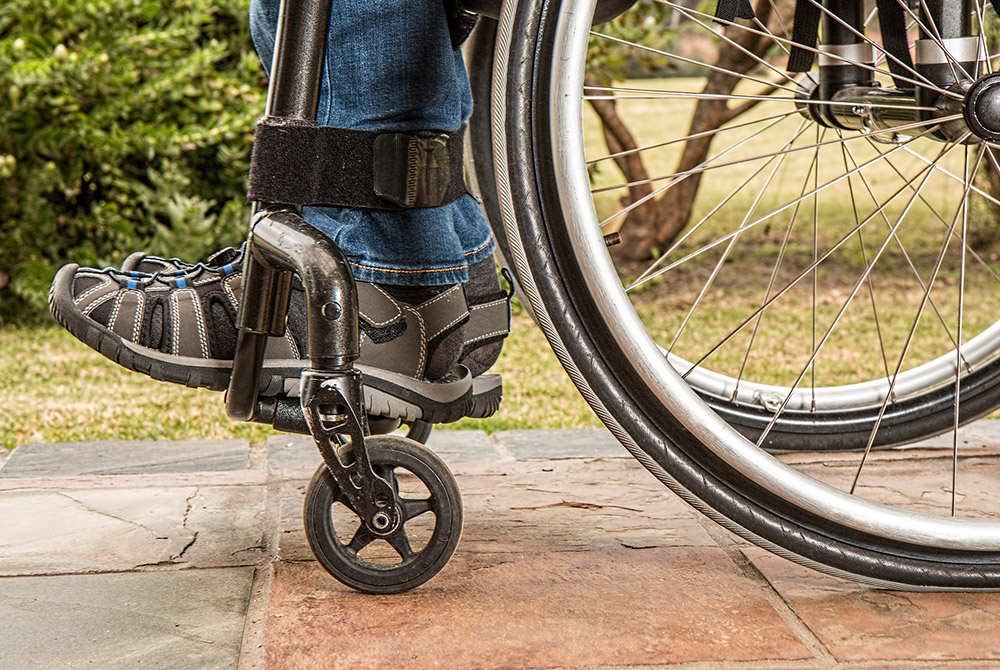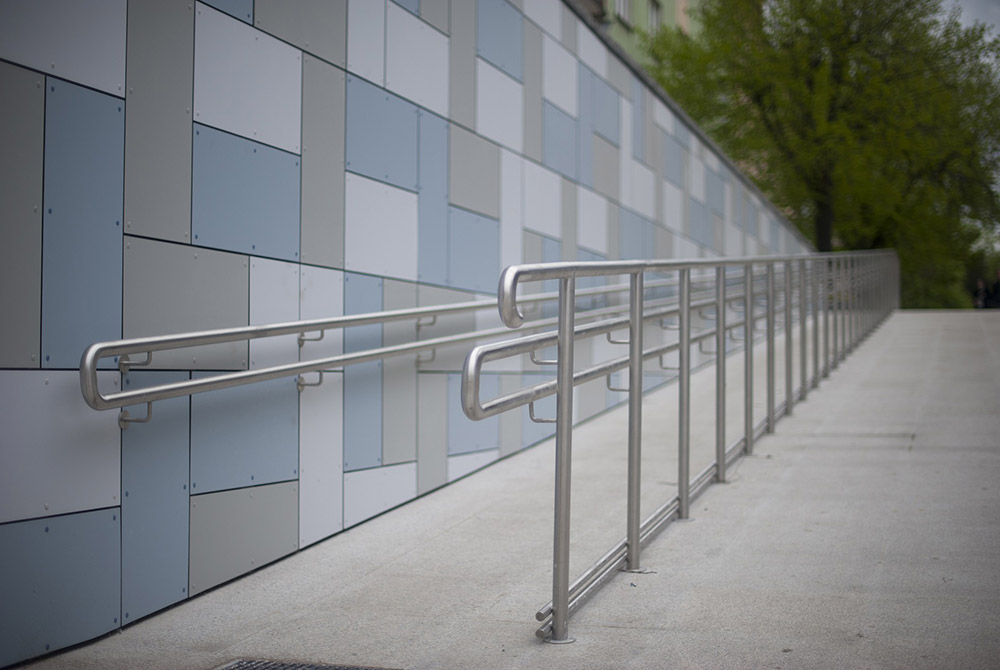
(Pixabay/stevepb)
Imagine going to Mass and not being able to get into a church building. Imagine going to confession and not being able to get into the confessional. Imagine a priest telling you that you are a burden to your parents. Imagine not being able to get on to the altar to be a lector, altar server or eucharistic minister.
As a lifelong wheelchair user, I have learned that many of the daily hassles, disappointments and discrimination that I experience in everyday life also occur in the Catholic Church.
Last year, I heard a homily during Mass that was egregiously ableist: A woman with a disability was described as a burden to her parents and disability was equated to sin. The priest added, "She would never have a full life." This was a dehumanizing experience for me.
I wrote to the pastor to express my sadness following Mass that Monday morning.
While he recognized the pain that this homily caused me, he directed me to the parish's various ministries dedicated to individuals with disabilities and refused to reaffirm the value of disabled Catholics at a future Mass.
The priest and pastor failed to see this woman, and me, as the face of God. The experience has had a lasting impact on me and made me question whether another Christian denomination may be a better fit.
Ableism in our church is rampant. It is not specific to one church, state or region of the country. Before the pandemic, it often took me weeks to find a church that was physically accessible. When I am able to get into the church autonomously, I immediately feel welcome to the community. Unfortunately, that sense of welcome wears thin as red flags appear in the form of sundry barriers. I prefer to receive the Eucharist in my hand, but eucharistic ministers are impatient while I maneuver my wheelchair. There are usually no cutouts in the pews for a wheelchair, which means I am forced to sit in front of the first pew or block the aisle during Communion.
In a world where many churches say, "All are welcome," I often wonder whether this applies to Catholics with disabilities like me.
Churches are exempt from being compliant with the Americans with Disabilities Act. For this reason, many do not have fully accessible facilities with curb cuts or ramps down their sidewalks, an accessible entrance near the common entrance, push-button doors, accessible restrooms, a space to park a wheelchair next to a pew, full access to spaces dedicated to ministry and special events, and access to the altar and rectory. At my former church, few acknowledged me or shook my extended hand during "peace." There was an accessible door, which was, regrettably, always locked. After advocating for myself, a layperson was assigned to open the accessible door. Then, I got shingles and missed weeks of church. When I returned, the door was locked and I asked a parishioner to tell the priest that I needed help getting in. The person designated to keep the door open came and angrily said, "If you're not going to come, I'm not going to keep the door open."

(Pixabay/AndrzejRembowski)
I was a faithful parishioner, yet I consistently faced attitudinal and physical barriers that prevented me from truly feeling welcomed at God's table.
Fighting ableism is a very lonely task, and often church is the loneliest hour of my week. The Catholic Church has a responsibility to welcoming the marginalized, including those with disabilities. How can we create a more accessible church that prioritizes the experiences of Catholics with disabilities?
Despite the unmet needs of their own congregants, churches often collect money for beautification of their churches and missions in other countries. Churches need to prioritize persons of all abilities in their fundraising. These resources can then be used to fund doors with push buttons and accessible bathrooms. If churches had heavy doors that their able-bodied congregants could not open and no bathrooms, there is no doubt that people would band together to fix these issues.
Instituting a hospitality ministry could also mitigate some of the challenges that are often fought alone. This ministry can be where individuals with disabilities go to set up getting seated first on holidays and at large events. They can also manage communication of elevator outages or other barriers a wheelchair user may experience and ensure that the accessible entrance is free of debris or snow.
Ableism and disability culture must be taught in seminary. There have been times when priests have said, "I'll pray for you. You'll be up and walking in no time. I know God will help you." On other occasions, homilies have included ableist language and concepts. This has caused me to feel less than and unwelcome, and question whether I am in a church that reflects the teachings of Jesus.
Advertisement
Additionally, priests and congregants should be mindful of using people-first language. I have been called a "wheelchair person" or "the disabled girl" by priests and congregants alike. I am a person first, so it is important to say "person with a disability." Moreover, it is important to know disability culture, such as the importance of never touching or moving a person's wheelchair or assistive device, an extension of that person's body.
Training in the church should be extended to eucharistic ministers and those who do the collection. It is important to not assume that I want the Eucharist in my mouth or that the collection should skip over me because of your perception that I do not have money.
Many Catholic priests begin and end Mass at the inaccessible entrance, which prevents me from having one-to-one contact with a priest. This affects my comfort when trying to make an appointment for confession, since I can't get into most confessionals. It also affects my ability to seek counsel. Individuals with disabilities often endure various testing and procedures, and it is uncomfortable to seek spiritual counsel when you have never met your priest and have heard ableist themes in their preaching.
In order for persons with disabilities to be fully integrated into church, we must be invited and welcomed to participate in ministry, parish council and community events. As we work to make the church a more welcoming place for all, we must never underestimate the power of invitation.
Lastly, important Catholic organizations that are geared toward social justice, such as Justice, Peace, and Integrity of Creation and The Office of Justice and Ecology must include initiatives that are related to ability.
As the Catholic Church becomes more welcoming under the leadership of Pope Francis, I am hopeful that advocacy and the inclusion of individuals with disabilities will flourish and all will be welcome to God's table.




